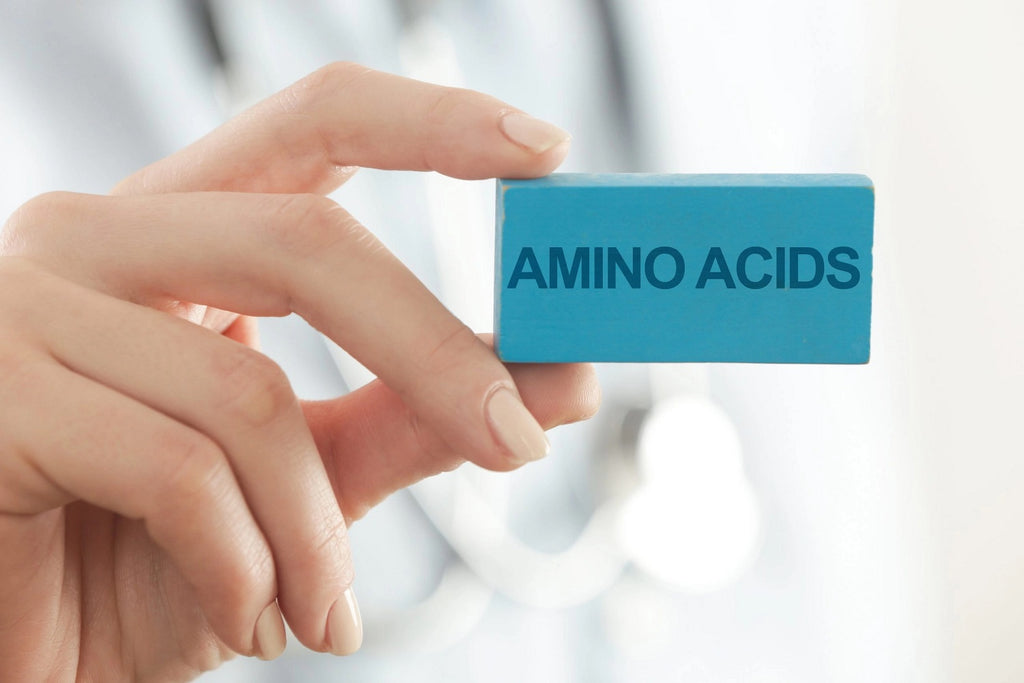
Unlocking the Power of Amino Acids for Better Health
Amino acids are often referred to as the building blocks of life. They play an essential role in maintaining the body’s health and ensuring its proper functioning. Whether you're an athlete looking to enhance performance, a professional managing stress, or simply someone who wants to maintain a healthy lifestyle, understanding amino acids and their benefits can be transformative. This article delves into what amino acids are, their types, and how they benefit your overall health.
What Are Amino Acids?
Amino acids are organic compounds that combine to form proteins, which are critical for nearly every physiological process in the body. They consist of carbon, hydrogen, oxygen, and nitrogen, and sometimes sulphur. Proteins, in turn, are vital for growth, repair, and maintaining the structure and function of cells and tissues.
In simple terms, amino acids are the small molecules that join together in chains to form proteins. These proteins are then used by the body for various essential functions, such as building muscles, repairing tissues, and producing enzymes and hormones.
Types of Amino Acids
Amino acids are classified into three main categories:
- Essential Amino Acids These cannot be synthesised by the body and must be obtained through diet. There are nine essential amino acids:
- Histidine
- Isoleucine
- Leucine
- Lysine
- Methionine
- Phenylalanine
- Threonine
- Tryptophan
- Valine
- Non-Essential Amino Acids These are produced naturally by the body, even if they are not consumed in the diet. Examples include:
- Alanine
- Asparagine
- Aspartic acid
- Glutamic acid
- Conditional Amino Acids These are typically not essential, except in times of illness, stress, or injury. Examples include:
- Arginine
- Cysteine
- Glutamine
- Tyrosine

How Do Amino Acids Benefit Your Health?
Amino acids contribute significantly to numerous bodily functions, ranging from muscle repair to brain health. Here are some key ways they benefit your overall health:
- Muscle Growth and Repair
Amino acids, particularly branched-chain amino acids (BCAAs) like leucine, isoleucine, and valine, are critical for muscle growth and repair. They stimulate protein synthesis, which is essential for building muscle mass and repairing tissues after exercise or injury. Athletes and fitness enthusiasts often supplement with BCAAs to improve recovery and enhance performance.
- Boosting Immune Function
Certain amino acids, such as glutamine, play a vital role in supporting the immune system. Glutamine helps maintain the integrity of the gut lining, which is crucial for preventing infections and inflammation. A healthy gut is directly linked to a robust immune response.
- Supporting Brain Health
Amino acids are precursors to neurotransmitters, the chemical messengers in the brain. For instance, tryptophan is converted into serotonin, a neurotransmitter that regulates mood, sleep, and appetite. Similarly, tyrosine contributes to the production of dopamine and norepinephrine, which are associated with focus, alertness, and motivation.
- Enhancing Energy Levels
Amino acids are also involved in energy production. For example, BCAAs are metabolised directly in the muscles rather than the liver, providing a quick source of energy during physical activity. This is particularly beneficial for endurance athletes.
- Supporting Digestive Health
Glycine, a non-essential amino acid, is crucial for producing collagen, which strengthens connective tissues, including the gut lining. A strong gut lining prevents conditions like leaky gut syndrome and supports overall digestive health.
- Promoting Skin, Hair, and Nail Health
Amino acids contribute to the production of keratin and collagen, proteins that are essential for maintaining the strength and elasticity of skin, hair, and nails. Proline and glycine, in particular, are important for skin repair and hydration.
- Managing Stress and Anxiety
Tryptophan and GABA (gamma-aminobutyric acid), derived from amino acids, have calming effects on the nervous system. They help regulate stress levels and improve sleep quality, making them beneficial for mental health.

Dietary Sources of Amino Acids
To ensure your body gets all the essential amino acids, it is important to consume a variety of protein-rich foods. Here are some excellent dietary sources:
- Animal-Based Sources:
- Meat (chicken, beef, pork)
- Fish (salmon, tuna, mackerel)
- Eggs
- Dairy products (milk, cheese, yoghurt)
- Plant-Based Sources:
- Legumes (lentils, chickpeas, beans)
- Nuts and seeds (almonds, sunflower seeds, chia seeds)
- Whole grains (quinoa, oats, brown rice)
- Soy products (tofu, tempeh, edamame)
Supplementing with Amino Acids
While most people can get sufficient amino acids through a balanced diet, certain circumstances may warrant supplementation. These include:
- High-intensity training or endurance sports.
- Recovery from surgery, injury, or illness.
- Vegan or vegetarian diets lacking in certain essential amino acids.
Amino acid supplements are available in various forms, including powders, capsules, and drinks. Always consult a healthcare professional before starting any supplementation.
Potential Risks and Considerations
While amino acids are generally safe, excessive intake can have adverse effects. For instance, high doses of certain amino acids, such as methionine, may lead to toxicity. Additionally, individuals with specific medical conditions, such as kidney or liver disease, should exercise caution and seek medical advice before increasing their protein or amino acid intake.
Conclusion
Amino acids are indispensable for maintaining optimal health and well-being. From building muscles to supporting mental health, their benefits are far-reaching. Incorporating a variety of protein-rich foods into your diet ensures that your body gets the essential amino acids it needs to thrive. Whether you’re focused on improving physical performance, enhancing your immune system, or simply living a healthier life, amino acids are a cornerstone of good health. By understanding their importance, you can make informed choices to support your body and mind effectively.

